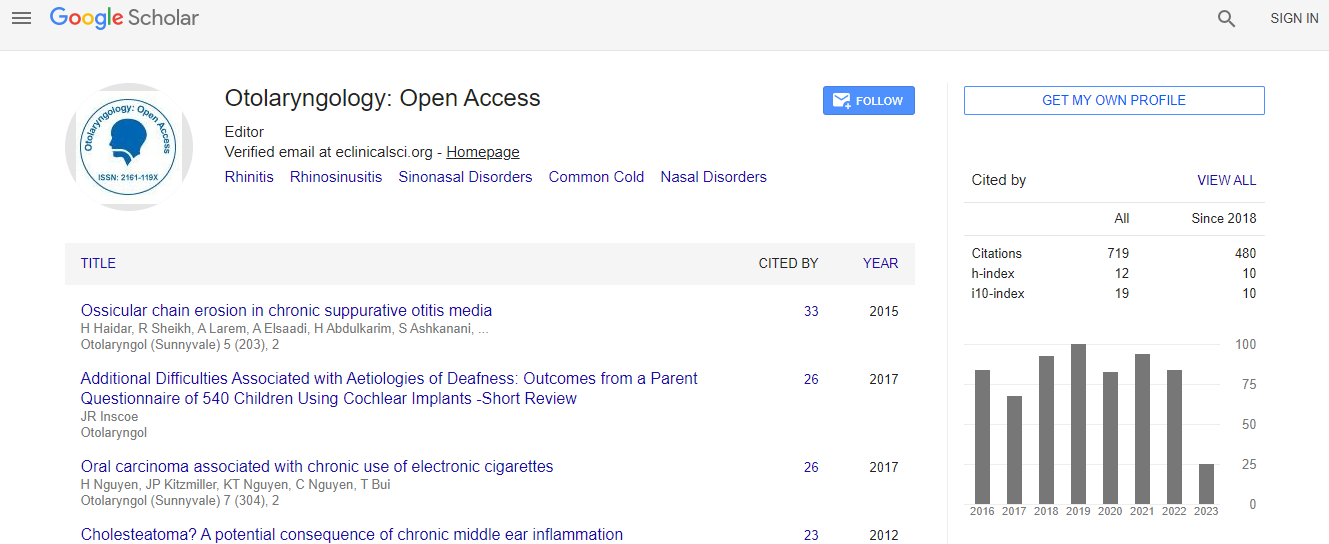Gradenigo syndrome: a rare cause of pediatric diplopia
*Corresponding Author:
Copyright: © 2020 . This is an open-access article distributed under the terms of the Creative Commons Attribution License, which permits unrestricted use, distribution, and reproduction in any medium, provided the original author and source are credited.
Abstract
Gradenigo Syndrome is a rare complication of acute otitis media in the post-antibiotic era. It presents as a triad of otorrhea due to otitis media and petrous apicitis, trigeminal neuralgia and ipsilateral abducens nerve palsy. Prior to access to modern antibiotics it was associated with high morbidity and mortality. In the modern era of antibiotics this presentation is now rare. It remains, however, an important consideration in a paediatric patient presenting with abducens nerve palsy. Methodology: We describe a case of Gradenigo Syndrome in a fourteen-year-old and review the current literature to discuss the diagnosis and management in the era of modern antibiotics. Case: A 14-year-old female patient presented with a three-week history of mucopurulent otorrahea and one week of headache and diplopia. She was previously well with no past medical history or history of immunocompromise. Examination revealed bilateral tympanic membrane perforations with mucopurulent otorrhea, conductive hearing loss, and a left abducens nerve palsy. She had no mastoid tenderness or bogginess and visual acuity was normal. Inflammatory markers were mildly elevated. Otorrhea was sent for culture and was positive for Beta-haemolytic Streptococcus (Group

 Spanish
Spanish  Chinese
Chinese  Russian
Russian  German
German  French
French  Japanese
Japanese  Portuguese
Portuguese  Hindi
Hindi 
